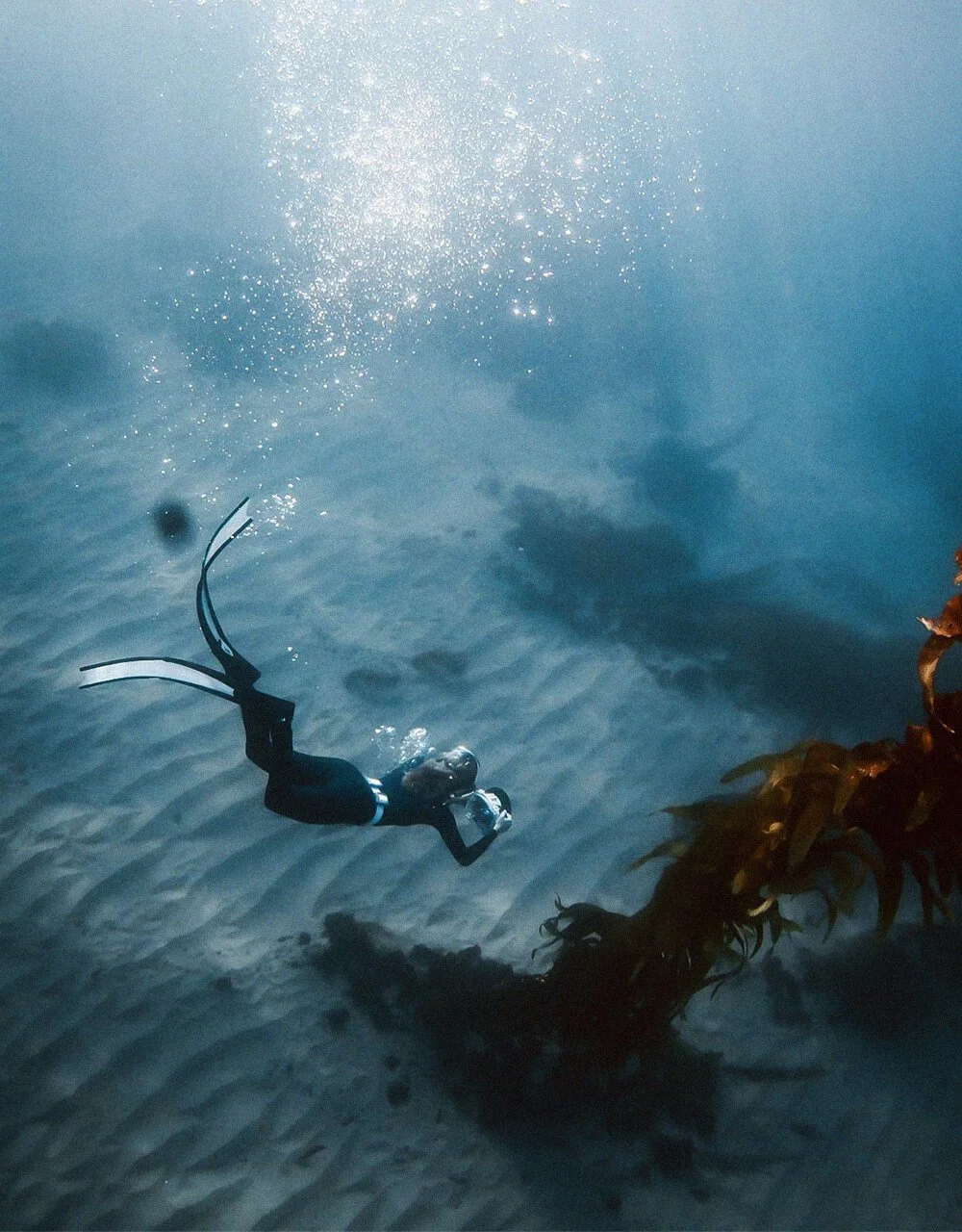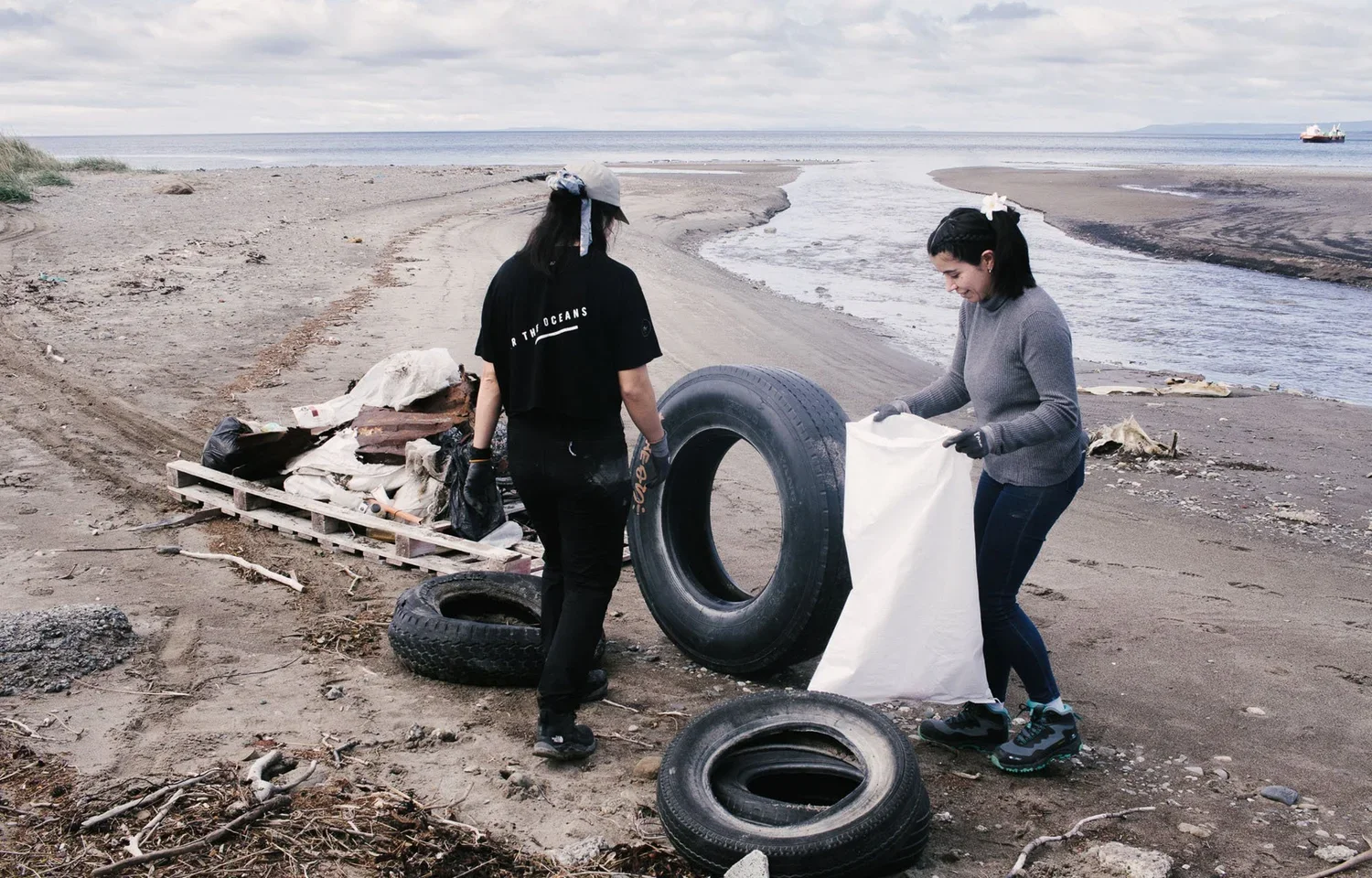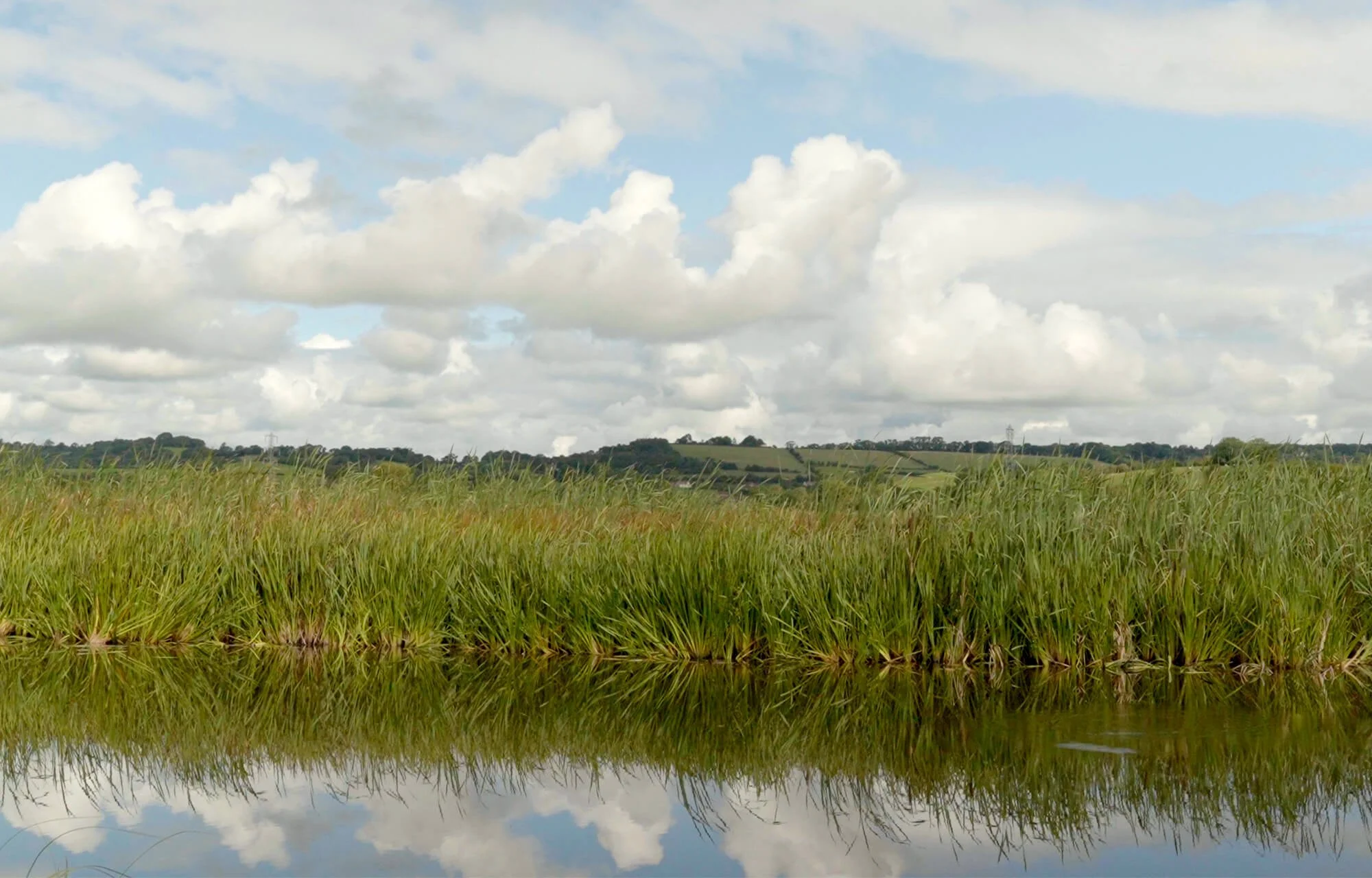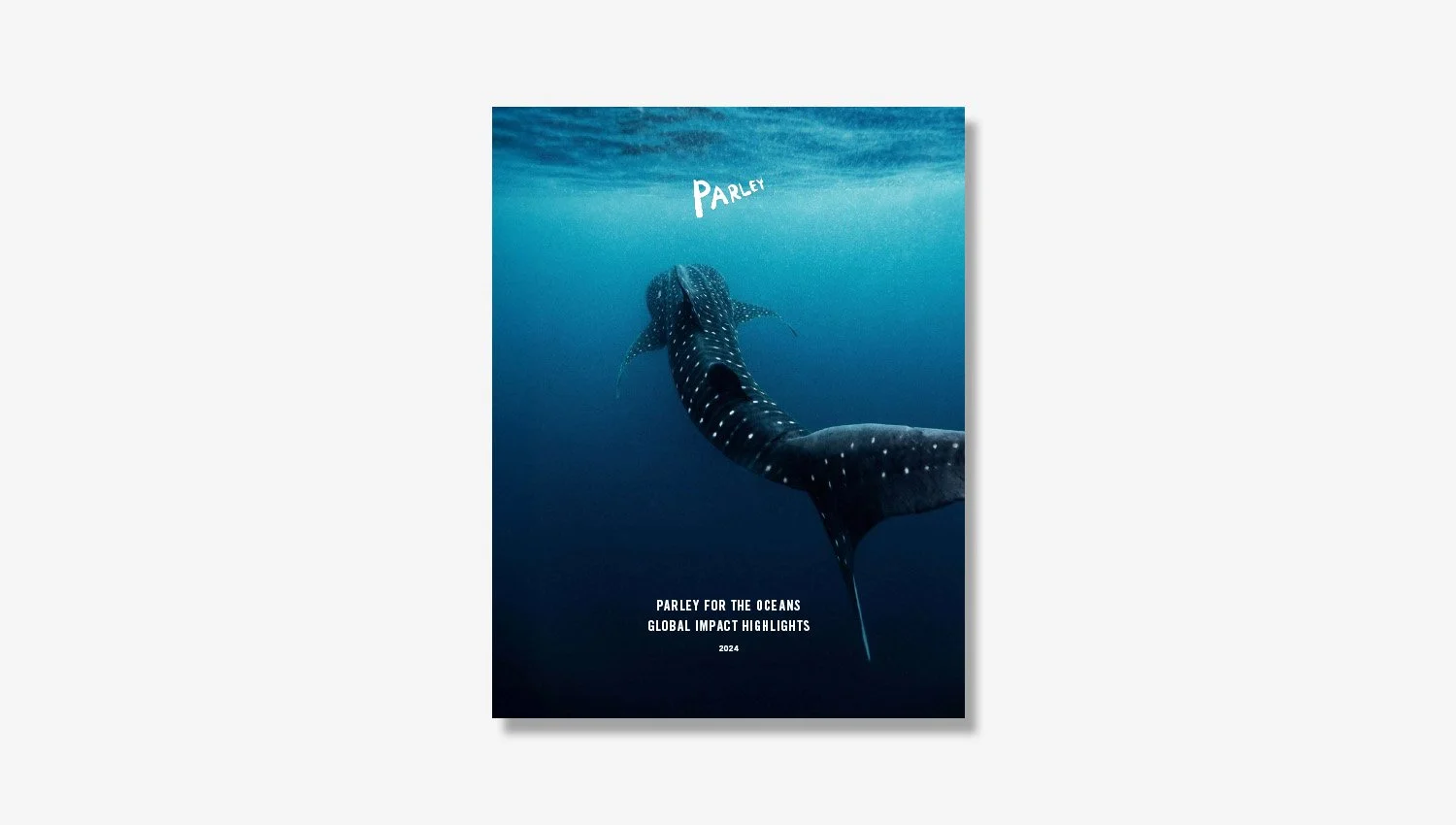Lamya Essemlali: We Need to Take the Pressure Off The Ocean
“It's a miracle there's anything left in the ocean”
If we want a survivable future on Earth, we have to stop killing its life support system. Life on land depends on life below the blue surface, and that life is increasingly threatened by our bottomless appetite for fish, meat, pet food and wellness supplements. In short, humanity is taking more from the oceans than the oceans can give.
According to the United Nations, 90 percent of global marine “fish stocks” – language worth re-examining – are now fully exploited or overfished. Exacerbating the losses are destructive, nonselective fishing nets and gear which, even in legal uses targeting species considered acceptable for consumption, accidentally catch and kill the more recognizably “charismatic” marine mammals, such as whales and dolphins. The consequences are felt throughout the entire food web, and compromise the oceans’ ability to sequester and store carbon.
To better understand the impacts of industrial fishing, we spoke to Lamya Essemlali – an ocean activist, advocate and mother who has followed what’s happening at sea for more than 17 years with Sea Shepherd, where she now splits her time as president of Sea Shepherd France and co-director of Sea Shepherd Global. Here, she discusses the state of the oceans, her motivation in work that can feel hopeless, and what she wishes people would understand about the ecosystem that holds our planet together.
Q & A
Parley: What's one of your earliest ocean memories?
Lamya Essemlali: The Atlantic Ocean in Morocco. I grew up in the suburbs of Paris, far away from the sea, but I had the chance to go to Morocco every summer because both my parents are from there. That's where I met the ocean. To me, the ocean has been the symbol of freedom and wilderness, it showed me that there was more in this world than concrete.
When you look out at the ocean surface now, what do you see?
Well, I think one of the tragedies of the ocean is that when you look at it from the surface, nothing changes. Both the beauty and the destruction are invisible to the eye, and that's an issue because we don't realize how much beauty and wonder there is below. At the same time, we don't see all the pollution and the destruction. If you don't put your head below the surface, you just go unaware of what’s happening.
And what is happening?
The oceans are dying. They're dying from humankind. We were born in the ocean and if the ocean dies, we all die. We need to relieve the pressure on the ocean. That's maybe the single most urgent thing to do, if you want to survive on this planet. We fish too much. Basically, our infinite appetite for fish is destroying the ocean.
What’s the goal of Sea Shepherd?
Sea Shepherd is an organization that exists to defend and protect the ocean, marine life, and marine habitats. From the great whales, sharks, tunas, sea cucumbers, charismatic animals and less charismatic animals, they all matter. It was set up mainly in the beginning as an anti-poaching organization that was meant to enforce the law because there are no police at sea. On the high seas and even in territorial waters, there are laws, and treaties, and regulations, but most of the time they are not enforced. And sometimes they are not powerful or restrictive enough to have meaning. We do have protected species on paper, but if this doesn't come with the protection of their habitat, it doesn't mean anything.
Is it true there’s a question on the Sea Shepherd volunteer application about whether you would give your life for a whale?
Actually, that's the first question that Captain Paul Watson asked me when I met him in Paris, after he gave a talk in January 2005. At the time, Sea Shepherd didn't exist in France. I was a student then and felt so inspired by his talk, I went to him and I told him, "Okay, I want to join this organization. I want to be part of it, so what can I do?" The first question he asked me is, "Would you be willing to risk your life for a whale?" There are many ways to join Sea Shepherd and to be a part of the whole thing. But if you want to go on the field, you need to be willing to take some risks because people we confront can be violent. There is a notion of risk, and you need to have this in mind when you join.
What are some of the biggest threats to sea life?
Bycatch has become the number one threat on marine mammals worldwide. Approximately 300,000 marine mammals are killed every year, caught in nets and longlines. Bycatch is accidental and therefore, it's not considered illegal, but it should be because we should be protecting marine habitats. Otherwise, we cannot say that we have protected species.
What’s the goal of Operation Dolphin Bycatch?
It's about protecting dolphins that die by the thousands on the French coast, because of legal fishing vessels that have non-selective fishing gear. Basically, dolphins and fishermen seek the same thing, they're looking for fish. The ocean is a common habitat… dolphins just go everywhere they want to. And if we have non-selective fishing methods, if we have nets that go for dozens of kilometers in the dolphins fishing ground, you catch dolphins and you kill dolphins. It's a miracle there's anything left in the ocean. What we see in the Bay of Biscay alone in France, we put 45,000 kilometers of net every 24 hours. This is enough net to go around the globe.
Where does this destructive legal activity go down?
It's happening on the coast, not that far away from the coast. It's up from, I don't know, 10 to 30, 40 miles away from the shore. The problem is that most people are disconnected from what's happening in the ocean. And when it comes to France, France is a good example of that because this is the second largest marine territory in the world. France is the only country that actually has a presence in every ocean of the world. And when you look at how French citizens are aware of what's in the ocean and what is happening, it's scary to see how disconnected they are.
How do you get people to care?
It's easy with dolphins because they have huge sympathy capital. They're charismatic species and most people love dolphins. When they see a dead dolphin and we explain then that thousands of them died because of fishing gear, people care, and they are shocked. It's more difficult to make people feel for sardines, or eels, or cod, or sea cucumbers. But if we manage to protect the dolphins' habitats, then we also protect all the species that live within that habitat. That's what we call an umbrella species, because you protect that species and it's going to protect the whole ecosystem.
Unfortunately, there is a lot to do to make people realize that all life matters and that yes, species of fish are important. Even the fisheries and scientists refer to fish populations as stocks. We tend to forget that we are talking about life, and we are talking about animals and individuals. I think this is a vision that we need to change because it is untrue. The more science progresses and the more proof we have of the fact that fish are clever individuals, sensitive individuals, they have personalities. It's not because they're so different from us that they don't feel anything, and that they don't deserve respect as living individuals.
Why do the oceans matter?
Even if we were extremely selfish, we would still have to make the defense, the protection of marine ecosystems a top priority for our own survival, because this is the number one climate regulator. Even before forests, most of our oxygen has been produced by the ocean. And quite simply, what Paul Watson has been saying for decades now, if the ocean dies, we die… If we cannot save the ocean, we cannot save ourselves.
What do you wish people understood about ocean threats?
The number one threat on the ocean today – there are many, there is global warming, there is pollution – but the number one threat is overfishing. It's our growing appetite for fish. Too many people eating too much fish, that's what's destroying the ocean above all, so it starts with your plates really. There is enough fish in the ocean for people who need fish to survive, there isn't enough fish for people who just eat sushi without even thinking about it. We are nearly eight billion people on this planet. Clearly, there aren't enough fish in the ocean for eight billion people.
What role can an individual play against this huge, systemic threat?
There are many things to do. It starts with your own consumption.. Think about the fish on your plate. If it's not a matter of survival for you, then your fish would be better in the ocean. That's one thing. It depends on what you do, what you are good at, what you like to do and your imagination. People know best what they can contribute… And when it comes to changing the rules, it will never come from politicians. We have to put the pressure on them if you want them to change. We need to put pressure on companies as well. So the solution is individual and collective, it's not either one or the other.
Controversial but asking it anyway - what gives you hope for the future?
You know what, I don't even know if I have much hope. It depends on the day. I think the important thing is not to link your motivation to the amount of hope you have. Even if you were able to show me in a crystal ball that says this is a lost cause, and that we are all going to hell, I would do exactly the same thing because I need to feel that I'm doing everything I can.
What motivates you as an ‘environmentalist’?
Well, I've always been very motivated because I always cared about animals and nature since I was a kid, but it's true that when I became a mother, it added another layer on top of it. I think one of the most common things, no matter where you're from, or what's your background, or your culture… the most important thing to you is your children. You don't want to build hell for your children. You don't want them to suffer, and you don't want them to suffer because you lacked conscience, you lacked action, you were selfish or you didn't want to bother. You want to be able to tell them, "Hey, I did everything I could so that you could live in good conditions. I didn't want hell for you and I did everything I could."
Photography courtesy of Sea Shepherd
















